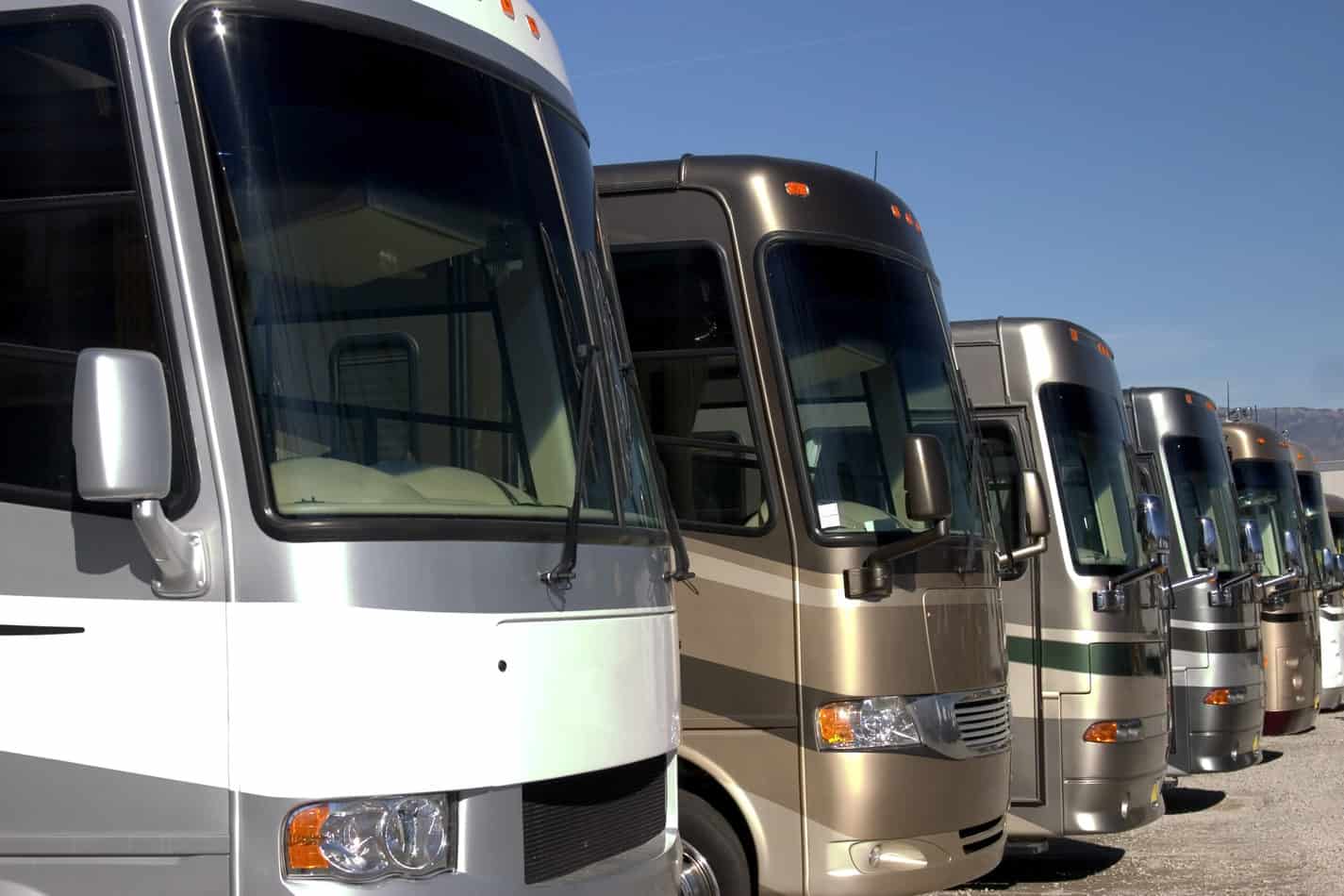Purchasing a used RV can be a daunting task, especially if you are new to the RV world. Preparation is key when beginning the search for a used RV. Extensive research in the buying process can save you big money and will help make sure you are getting the best RV. The right questions will help you avoid getting stuck with an RV that you won’t love.
Here is a list of questions you should ask every used RV dealer:
- What are the basic specifications?
- What is the ownership history?
- What is the repair, maintenance and usage history?
- What is the cosmetic condition of the RV?
- Is the RV mechanically sound and fully functional, including appliances?
- Does the dealer offer any guarantees or warranty?
Over the course of 6 months, I spent over two hundred hours interacting with 20 dealerships in-person and online in several different states. By asking these questions, I was able to find a wonderful 5th Wheel rig at a great price and I have really enjoyed living in it.
This article will cover numerous questions you should ask your RV dealer but is far from exhaustive. I recommend using the questions we’ll discuss here as well as any you and your family come up with. Make sure to write them down because I guarantee that you’ll forget what you wanted to ask when you’re with the dealer.
A used RV is often purchased “as is”, without a warranty of any kind. It is critical to make sure you learn as much as you can about the RV before making the purchase and driving off the lot. Once you leave the dealership, the dealer is released from any liability related to maintenance or repair of issues you may find.
What Are The Basic Specifications?
It is important to make sure you have a full understanding of all of the specifications of the used RV you are considering. Knowing these specifics and all of what the RV includes will prevent you from experiencing any surprises later on.
You will want to learn all of the following specifications:
Make, Model, Year, Color
Dimensions
- Length
- Width
- Height
Weight
- Stated empty weight of the RV
- Stated loaded weight of the RV
Water system capacity
- Water heater capacity
- Size of the fresh water tank
- Size of the gray water tank (shower and sink drain)
- Size of and black water tank (toilet drain)
Battery system
- Type of battery
- Size in amp hours
- Battery charging methods (converter, vehicle engine, solar)
- Inverter capacity in wattage for when on battery (not on shore power)
Shore Power Amperage (30A or 50A)
Solar
- Number and wattage of panels
- Maximum amperage of solar controller
- Amount of available space to expand the system
Type, make, model of appliances
- Refrigerator – AC/DC/Propane
- AC
- Furnace
- Microwave
- Oven/Stove-top
- Washer/Dryer
- Fireplace (propane)
Slides
- How many
- Location(s)
Awning
- Manual or motorized
Used RVs on the dealership lot are often trade-ins from manufacturers that the dealer may not be familiar with. You should expect the dealer to research any information they do not already know. Don’t be afraid to ask questions. It’s their job to answer your questions and mitigate any concerns you have about the RV
What Is the Ownership History of the RV?
If you are considering a used RV, it’s important to learn everything you can about its history. The previous ownership will tell you a story about its past. Did the owner use it just a couple of times and it sat in storage most of the year? Was it run across the country numerous time and is near the end of its life?
Knowing a used RVs past journeys will help you understand any quirks or oddities it may have. Look for areas of wear or damage. A small sign of water damage can indicate a larger problem that is worth exploring.
How many previous owners did the RV have? Did they provide maintenance records?
Was it a trade in? If so, when was it traded in?
For example, my 5th wheel’s previous owners traded it in shortly after buying it because they were an older couple that did not feel comfortable pulling a 5th wheel. They didn’t return it because there was anything wrong with it. They traded it simply because they wanted to go back to driving a Class A motorhome that they were used to driving and maintaining.
Were any of the existing equipment/appliances added by the previous owners (i.e., not installed by the manufacturer)? For example, sometimes a used RV will have aftermarket solar panels added later. After market upgrades can indicate problems the previous owner had with the vehicle or just add value to the vehicle.
Did the previous owner have an extended warranty that can be carried over to you?
What Is the Repair, Maintenance and Usage History?
You never want to be stuck with an RV that has a tainted history of accidents, excessive wear, or ongoing maintenance issues. Too many RV buyers discover damage or maintenance problems after the purchase. Unless you are intimately familiar with RVs and their systems, we recommend hiring a professional inspector to vet the vehicle.
A couple hundred dollars is well worth it if you have peace of mind in your purchase decision. Who knows, an inspector might keep you from making a HUGE mistake.
Make sure to press the dealer about these things:
Does the dealer have any maintenance records?
Is the dealer aware of any damage or maintenance issues? Can they provide a list of those issues?
What year are the tires? How much tread do they have? How much longer will they last? How much will replacement tires cost when you need to replace them?
If a tow behind or fifth wheel, is the dealer aware of how many miles the previous owner(s) towed the RV?
How old are the propane tanks? When was the last time the tanks were certified?
Is the battery original? Has the battery been load tested for current capacity?
Did the dealer complete any repairs or replace any appliances before putting the RV out on the lot?
Has the RV had any leaks (roof, slides, windows) while the RV has been sitting on the lot?
Has the RV been in an accident? If so, how severe? Are there any issues with the frame (warped, dented)? Was the RV totaled or salvaged?
What is The Cosmetic Condition of the RV?
How long has the RV been sitting on the lot? If sitting too long, is there something wrong with it? Is it an “ugly duckling.” RVs are supposed to sell quickly so finding an ugly model may indicate that there is a significant problem. On the other hand, it may have seen its fair share of travel and is a well-worn in diamond in the rough. If you don’t mind a cosmetically challenged RV, it might be worth inspecting as you may walk away with a steal of a deal
Inspect the condition of the following areas:
Interior – look for signs of wear including water and mold damage
- Upholstery
- Flooring
- Windows
- Trim
- Cabinets
- Paint
- Faucets
- Wallpaper
- Shades
- Lighting
Exterior – look for signs of body work or mismatched paint that may indicate the RV has been in an accident.
- Paint
- Decals
- Trim
- Lighting
Is The RV Mechanically Sound and Fully Functional, Including Appliances?
RV repairs are expensive, especially if you need to replace appliances or entire systems. All systems in an RV should be thoroughly inspected and tested, including all appliances. Never trust the words of a sales associate fully unless there’s a warranty and paperwork to back up their claim. They may be a great human being that’s only interested in getting you in your dream vehicle but it is a business with a considerable amount of money on the line.
Has the dealer completed a full inspection? Is there a report of that inspection?
Is there an option of hiring a 3rd party RV inspector that you select? Even with a dealer inspection, it can be a good idea to get a 3rd party inspection. It will cost a couple hundred dollars but save you in the long run.
Will the dealer demonstrate the functionality of everything to you?
Have all of the following been tested fully?
- AC and heat – run for an extended period. If the furnace sits for a while, particles may set off the smoke detector.
- Oven and stove top – no gas leaks. All burners work as intended.
- Water heater – run for an extended period
- Refrigerator – run up to the point of full cool
- Slides – operate them fully in and out several times. Look for signs that indicate they get stuck or stick.
- Brakes – have the brakes been serviced lately?
- Lights – operational with no bulbs needing to be replaced
- Awning – fully extend and retract. Look for signs of wear including rips and tears.
- Plumbing – fully pressurized water system with no leaks. Black and grey tanks working properly.
- Electrical – is the rig properly wired or do you have a rat’s nest? Batteries properly charging.
- Leveling system – operational and working correctly?
- Seals (windows/roof/door) – no signs of water damage or leaks?
- Propane systems (tanks, changeover valve)
- Hitch assembly if applicable
What are the working conditions of the wheels, axles and bearings?
What are the working conditions of the stairs, doors and ramps (if any)?
Are there any concerns about the frame integrity – rust, warping, twisting?
If you plan to move forward with purchasing a used RV, tell the dealer that you want to take as much time as you need to test everything yourself before leaving the dealer lot. Some dealers provide the option of living in the RV overnight somewhere on the dealer property to be able to complete more extensive testing. You want to make sure you test everything completely so that the dealer service center can make necessary repairs prior to your departure.
Does the Dealer Offer Any Guarantees Or Warranty On Your Purchase?
Is there any kind of money back guarantee? If so, what is the timeframe (for example, 30 days)?
Is there a warranty? How extensive is the warranty? Does it include all mechanical issues? Cosmetics? Can you purchase an extended warranty or maintenance service plan?
Who performs servicing if there is an issue? Is there a network of dealers across the state/country? If you travel far from the dealer and an issue arises, a warranty won’t be worth it unless they have a nationwide network that can service the vehicle.
Does the state in which you are purchasing the RV have a lemon law that applies to used RVs?
Conclusion
Too many purchasers of used RVs have expressed regret about not properly researching and thoroughly testing the RV prior to closing the sale. Taking the time to complete extensive research in the buying process and asking the right questions will help make sure you are getting a dependable RV you will love.

